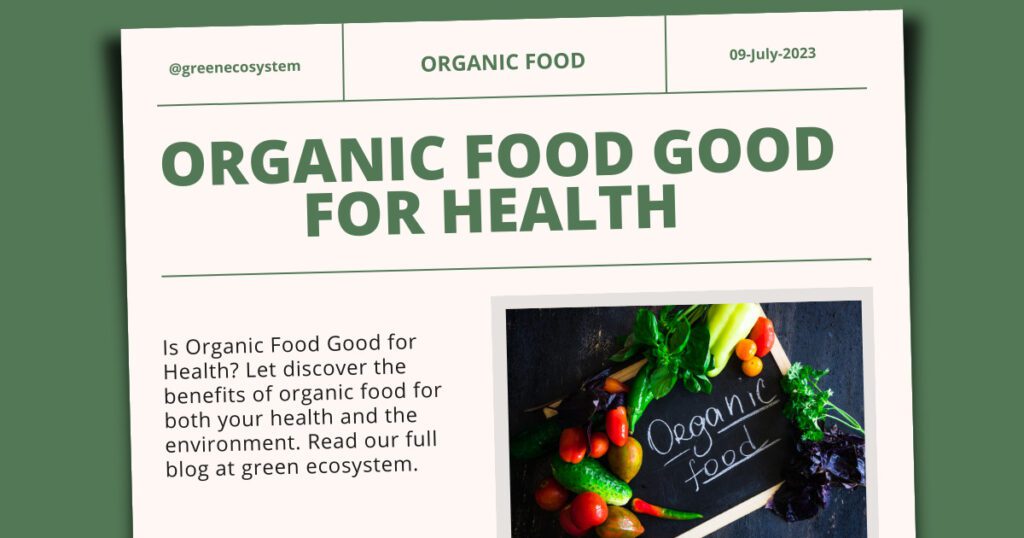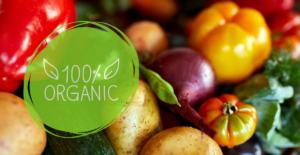Introduction
In recent years, the demand for organic food has been on the rise, as more and more people are becoming conscious of their health and the environment. Organic food is often perceived as a healthier and more sustainable option compared to conventionally grown food. This blog aims to explore the benefits of organic food for both our health and the environment, while also considering the concept of a green ecosystem. By examining the related search volume keywords, we can gain a deeper understanding of the importance of organic food in promoting a sustainable and healthy lifestyle.
1. Briefly introduce the topic of organic food and its relevance to health and the environment
Organic food refers to products that are grown or produced without the use of synthetic pesticides, fertilizers, or genetically modified organisms. It is becoming increasingly popular due to its potential health benefits and positive impact on the environment. Organic farming practices prioritize soil health, biodiversity, and the responsible use of natural resources. By avoiding the use of harmful chemicals, organic food reduces the risk of exposure to pesticides and promotes a healthier diet. Additionally, organic farming methods help to protect water quality, conserve energy, and reduce pollution, making it a more sustainable option for both our health and the environment.
2. Understanding the Green Ecosystem
Before delving into the benefits of organic food, it is crucial to understand the concept of a green ecosystem. A green ecosystem refers to an environment that is balanced and sustainable, where all living organisms, including humans, coexist harmoniously with nature. In this ecosystem, the use of natural resources is minimized, and human activities are in harmony with the natural processes of the Earth. Organic food plays a significant role in promoting and maintaining a green ecosystem.
2a. Explain the role of organic farming in promoting a green ecosystem
1. Organic farming plays a crucial role in promoting a green ecosystem by using natural methods to cultivate crops and raise livestock.
2. By avoiding the use of synthetic fertilizers and pesticides, organic farming helps to maintain soil health and prevent water pollution.
3. Organic farmers prioritize biodiversity, allowing native plants and animals to thrive, contributing to a balanced ecosystem.
3. What is Organic Food?
One of the primary reasons people opt for organic food is the belief that it is better for their health. Organic food is grown without the use of synthetic pesticides, herbicides, and fertilizers. Instead, organic farmers rely on natural methods such as crop rotation, composting, and biological pest control to ensure the health and vitality of their crops. This means that organic food is free from harmful chemical residues that can potentially harm our health.
3a. Explain the benefits of consuming organic food for human health
Consuming organic food offers several benefits for human health. Firstly, organic food is free from synthetic pesticides, herbicides, and genetically modified organisms (GMOs), which can have harmful effects on the body. By choosing organic, individuals can reduce their exposure to these potentially toxic substances. Additionally, organic food is often richer in nutrients, such as vitamins, minerals, and antioxidants, compared to conventionally grown food. Studies have shown that organic fruits and vegetables contain higher levels of certain beneficial compounds. Furthermore, organic farming practices promote soil health, biodiversity, and the conservation of natural resources, contributing to overall environmental sustainability.
4. Organic Food and the Environment
Organic food refers to agricultural products that are grown and produced without the use of synthetic pesticides, genetically modified organisms (GMOs), and chemical fertilizers. This farming method focuses on promoting biodiversity, soil health, and ecological balance. By avoiding the use of harmful chemicals, organic farming helps to protect and preserve the environment. It reduces water pollution, soil erosion, and greenhouse gas emissions. Additionally, organic farming practices promote the conservation of natural resources and support sustainable agriculture. Overall, choosing organic food is not only beneficial for our health but also for the environment.
4a. Discuss the negative impacts of conventional farming practices on the environment
1. Pesticide use in conventional farming can lead to soil and water pollution, harming the ecosystem and aquatic life.
2. Conventional farming practices often rely on synthetic fertilizers, which can contribute to nutrient runoff and cause harmful algal blooms in water bodies.
3. Large-scale irrigation in conventional farming depletes water resources, leading to water scarcity and affecting local ecosystems.
5. Health Benefits of Organic Food
Organic food offers numerous health benefits compared to conventionally grown produce. Firstly, organic food is free from synthetic pesticides and fertilizers, which can be harmful to human health. This reduces the risk of exposure to potentially harmful chemicals and toxins. Additionally, organic food is often richer in nutrients, such as vitamins, minerals, and antioxidants, as it is grown in nutrient-rich soil. Studies have also shown that organic food may have higher levels of beneficial compounds, such as omega-3 fatty acids. Furthermore, organic farming practices promote animal welfare, as organic meat and dairy products come from animals that are raised in more natural and humane conditions. Overall, choosing organic food can contribute to a healthier lifestyle and reduce the potential risks associated with consuming conventional food.
6. Organic Food and Biodiversity
Organic food and biodiversity are two interconnected concepts that play a significant role in shaping the future of our planet. Choosing organic food is not only beneficial for our health but also for the environment. Organic farming practices prioritize the use of natural fertilizers and pesticides, reducing the harmful impact on ecosystems. By supporting organic farming, we contribute to the preservation of biodiversity. Organic farms provide habitats for various plant and animal species, promoting ecological balance and the conservation of endangered species. Furthermore, organic farming encourages crop rotation and the preservation of heirloom varieties, fostering genetic diversity and resilience against pests and diseases. Embracing organic food is not just a personal choice; it is a step towards safeguarding our planet’s biodiversity and sustaining a healthy future for generations to come.
6a. Provide examples of organic farming methods that promote habitat preservation
1. Agroforestry: This method involves integrating trees and crops on the same piece of land. It provides habitat for birds, insects, and other wildlife, thereby preserving biodiversity.
2. Polyculture and Crop Rotation: Planting a variety of crops together and rotating them seasonally helps prevent the buildup of pests and diseases. It supports a diverse range of beneficial organisms, such as pollinators and natural predators.
3. Cover Crops: Planting cover crops like legumes or grasses during fallow periods helps to prevent soil erosion, promote soil health, and provide habitat for beneficial insects and microorganisms.
4. Conservation of Natural Areas: Organic farming often includes the preservation of natural areas like wetlands, woodlands, or riparian zones. These areas serve as wildlife habitats and provide ecological benefits like water purification and soil stabilization.
5. Wildlife-Friendly Practices: Implementing practices such as leaving buffer zones of native vegetation, creating hedgerows, and installing nesting boxes or perches can attract and support various wildlife species on farmland.
Conclusion
In conclusion, organic food holds several potential benefits for both personal health and the environment. As it is grown without the use of synthetic pesticides and fertilizers, organic farming practices promote healthier soil, water quality, and biodiversity conservation. Organic food also tends to have lower levels of pesticide residue, reducing potential health risks. Furthermore, organic farming often prioritizes sustainable practices such as crop rotation and composting, minimizing soil erosion and water pollution. While more research is needed to fully understand the extent of these benefits, choosing organic food can be a conscious step towards supporting a healthier lifestyle and a more environmentally friendly food system.


